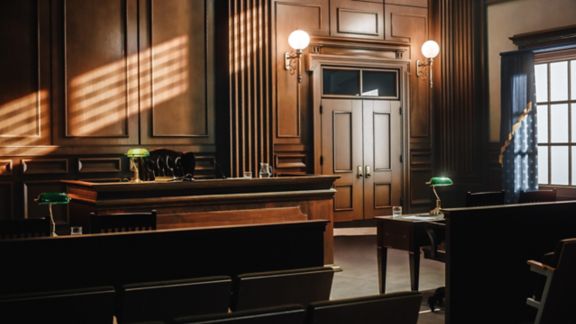Census of Tribal Court Systems

Challenge
The importance of data on tribal court systems.
American Indian and Alaska Native (AIAN) communities have a diverse range of justice systems, from Western style adversarial courts to dispute resolution based on culture and tradition. These approaches to justice are reflective of core community values, the vast diversity within Indian country, and the inherent sovereignty of tribal nations. The Tribal Law and Order Act of 2010 (TLOA; P.L. 111-211, 124 Stat. 2258 § 251(b)) requires that the Bureau of Justice Statistics establish and implement a tribal crime data-collection system. The Act specifies data collection and analysis of crimes committed on federally recognized reservations, in tribal communities, and on identified trust lands.
The Census of Tribal Court Systems (CTCS) seeks to fulfill the requirements of TLOA and to collect data to better understand the breadth and variety of justice systems in Indian country and support tribal courts’ needs.
Solution
Outreach and stakeholder engagement with tribal court systems.
In collaboration with our partners, the National American Indian Court Judges Association (NAICJA), the Tribal Law and Policy Institute (TLPI), the International Association of Chiefs of Police (IACP) and the IACP Indian Country Law Enforcement Section, BJS, and NORC will work with tribes and collaborative partners to develop questions which address data gaps in resources and operational needs. This will be done by:
- Communicating with and seeking feedback from Tribal leadership.
- Hosting webinars with tribal leadership, tribal law enforcement, tribal court systems, and federal partners.
- Presentations and information gathering at tribal, academic, and partner conferences and meetings.
- Holding a two-day in-person Tribal Justice Panel (TJP) meeting to solicit input from representatives of tribal court leaders from across the country.
Through these outreach efforts, we will compile a bank of possible survey questions. Working closely with the TJP, the final CTCS survey questions will be developed.
Result
CTCS survey development and administration.
Using feedback from these venues, the CTCS surveys will collect information from tribal court systems, Alaska Native Village judicial forums, and Code of Federal Regulation courts operated by the BIA. The surveys will be designed to capture unique attributes of tribal court systems, including information on staffing and retention, budgets and sources of funding, caseload and disposition, services and support provided, and interactions with federal, state, regional, and local agencies.
Data collection for the CTCS will primarily be collected by web. Data collected for the 2025 CTCS will build upon the 2014 CTCS work and provide needed data to tribes and federal, state, and local agencies. Data will be archived to the National Archive of Criminal Justice Data and BJS will release a report with the findings. For detailed information about the 2025 CTCS development and data collection activities, please see the materials below.








